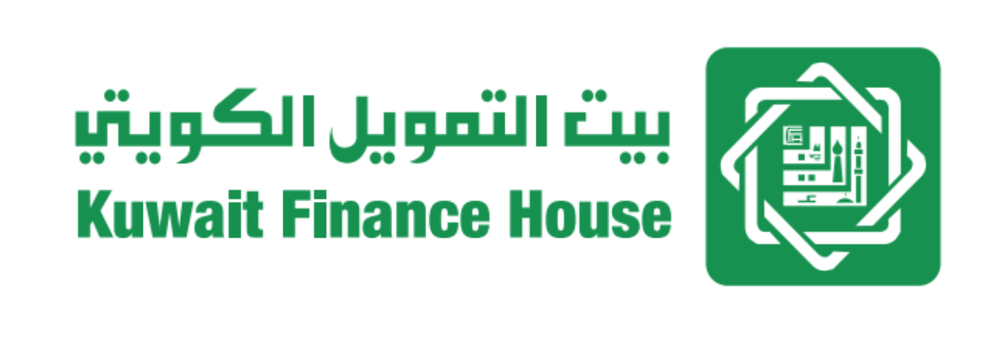Elevating MENA's Edtech Scene: Dars Founder And CEO Noor Boodai Kuwait-based startup Dars aims to elevate the level of education in the Arab world with up-to-date educational content that is accessible and available on-demand.
Opinions expressed by Entrepreneur contributors are their own.
You're reading Entrepreneur Middle East, an international franchise of Entrepreneur Media.

This article is part of a series on pioneering entrepreneurs in Kuwait that Entrepreneur Middle East has built in collaboration with Kuwait Finance House. Kuwait Finance House is considered a pioneer in Islamic finance or Sharia'a compliant banking, with it being the first Islamic bank established in 1977 in the State of Kuwait, and is today one of the foremost Islamic financial institutions in the world.

As the COVID-19 pandemic takes its toll on everyday life, the edtech market has proven to be agile with entrepreneurs building tech solutions to make sure students aren't left behind. Dedicated to the digital transformation of the sector, Kuwait-based startup Dars aims to elevate the level of education in the Arab world with up-to-date educational content that is accessible and available on-demand.
The startup was launched in 2016 by Noor Boodai. Boodai, who is passionate about education in the Middle East, also founded and runs a non-profit that facilitates the sponsorship of educating underprivileged children worldwide. Headquartered in Kuwait, the startup also has offices in Egypt and Jordan.
Dars -which means "a lesson" or "a teaching" in Arabic- stems on the philosophy that any lesson can be taught in school, at home, or in the real world. With that in mind, it's unsurprising that Boodai wants to tip the scales in favor of online education, with the objective to eventually become the go-to platform any time you want to learn about anything. With the aim to make quality education accessible to everyone, Boodai and the team have developed a number of products.
First off is Darisni, a learning app specifically designed for Arab users to provide a comprehensive and personalized learning experience with 24/7 on-demand online tutoring and educational videos for various subjects. Originally designed for students to offer on-demand online tutoring, it connected students to qualified teachers within 60 seconds. This was followed by the Darisni Teacher's app, a safe and secure communication channel for teachers to connect with students and their parents, and finally the team closed the loop with the Darisni Parent's app to help parents keep track of their kids' progress- making it seamlessly easy to educate, learn and communicate.
The app follows a freemium model, with basic free content available for all users, as well as on-demand tutoring that offered a few free sessions every month and provided subscription-based revenue. It also introduced in-app advertising to users using the free plans to boost revenue. According to Boodai, the app has since helped over 500,000 students, has worked with more than 500 tutors, delivered over 4,000,000 tutoring minutes in more than 50 countries worldwide.
Following Darisni's success, the startup launched Bounce in October last year, a learning management system (LMS) designed for pre-schools and nurseries to connect educators, school administrators and parents and create collaborative childcare communities. With early adaptors Kuwait, KSA, and Egypt, the mobile-first platform is designed to makes it easy for users of all levels of digital literacy to access the system. The ease of management and enhanced communication with parents, along with the virtual learning has helped nurseries with business continuity, as well as grow their number of students. "[It] bears testimony to the fact that we create solutions that solve real problems, driving real value for our stakeholders," Boodai says.
The startup is soon launching Edmate, an LMS system designed for K-12 students and above. "We want to be a part of a learner's journey right from the beginning," states Boodia, on how the new LMS was designed to address the needs of the K-12 and higher education market. She explains that Edmate is developed to "manage, teach and reach," with features such as class management, automating recurring tasks (payment collection, reminders, attendance, grading), and helps track student progress. "It drives collaboration between all scholastic stakeholders by removing education roadblocks."
Bounce and Edmate, running as SaaS solutions, provide another subscription-based revenue for the startup, wherein nurseries and schools pay a monthly subscription fee per student. "This is done so that institutions of all sizes can benefit from the system, by only paying for what they use," Boodai explains. "The beauty about a SaaS solution for our stakeholders is that they benefit from all features added to the product roadmap without paying add-on fees." An aspect that the team came across was noticing the lack of quality educational content in Arabic- this presented an opportunity for another revenue as the team created the Dars' digital content library. Boodai explains: "[It] uses empirical research to create rich digital content mapped to local curricula that can be consumed by students as bite-sized lessons. Schools can buy part or complete access of our 4,000+ educational videos library and roll out the content either using Dars' Edmate solution or their own pre-existing software."
 Source: Dars
Source: Dars
As Boodai and her team strives to make a name for themselves as a notable edtech player in the Middle East, I ask what Dars is offering differently to the market. "Our biggest strength is the user interface we have created," she points out. "When it comes to education, people focus on information and processes, rather than functionality and usability. What edtech companies often forget is that their user at the end of the day is also a normal person who uses technology to order food, book tickets, get cabs, and so on and so forth. If stickiness and ease of transaction are focused on [there], why not in edtech?"
The team also makes it a point to keep in mind to treat a customer (whether a student, teacher or school) who could easily opt out of the system if it's clunky and confusing, instead of a smooth and intuitive user experience. "We create systems that are easy to use for users with all levels of technological literacy, increasing our platforms' stickiness, and in turn, its effectiveness for the users to access it." Another advantage that Boodai says they have over their competitors is their firsthand experience with school managements, teachers, students, and parents. "Having worked with experts in the field, while also speaking directly to end-users, our strength truly lies in understanding the customer, their habits, where they need automation, and how we can help them save time and effort, while also ensuring that effective learning holds the highest priority- always."
While the team's focus initially was finding market gaps (and creating products) that address the issues of various educational stakeholders, going forward, they're now focused on scalability. "[The products] are highly customizable, so that they can easily mesh with our users' educational environments. Now, it is time for us to take these products to as many people and markets as possible," says Boodai. The founder believes in following an agile framework for development- which have proven to be useful as it's what the Dars team kept in mind to navigate the global pandemic. "We build for tomorrow, rather than building for two years from now. We understand how [it] quickly trends, consumer preferences, and market needs change, as such, are constantly working towards adapting to these demands."
 Source: Darisni
Source: Darisni
"TREP TALK: Noor Boodai, founder and CEO, Dars
What are some of the main considerations that entrepreneurs should keep when starting up a business in Kuwait?
1. Know your market "Learn as much as possible about your chosen market, before you start on anything else- current players, the kind of opportunities available and especially the gaps. Market research will go a long way in helping you build a solid foundation for your business, preparing you for any threats or weaknesses that may arise as the business grows. From getting to know your target audience to exploring potential competitors, market research will give you the competitive edge you need to thrive in new environments."
2. Know what your business will offer differently "For any business to be economically viable, it is important that the solution you deliver is used by a large enough number of people. Most new startups look to deliver solutions they find missing in their life, whereas what you need to do is look at common problems that a large part of the population is facing. You then need to differentiate yourself from other products and services, and really focus on how it is that you are driving value in your consumer's life."
3. Execute your ideas "As the famous saying goes, "an idea is nothing without execution.' There is no shortage of 10-million-dollar ideas in the market, but what is truly lacking is good execution. Research, plan, execute, and pivot when needed - this is an exercise that should be every entrepreneur's mantra. The best of innovations and business ideas sometimes don't come to fruition due simply to a lack of persistence in execution."
4. Choose wisely "Be careful when selecting your investors. The investor you pick should not just monetarily contribute to your business but also share the vision you have for your company and your team."
What are some of the opportunities that you see available in the Kuwaiti market today? What would be your advice to aspiring entrepreneurs?
"I think technology as a market is just starting out. From the outside it may seem like there is a new startup coming up every minute, however, there are very few stable startups that are doing consistent work, which means that there is lots of space for people with talent and insight. The quintessential element missing in the market is execution. Opportunities can only be turned into successful enterprises, when supported by impeccable execution. This is why, in my opinion, we see a lot of startups fall through the cracks, not because they did not have a great idea, but because they were not well executed. Proper execution needs persistence, stamina, and the will power to keep going – not every day is going to be a sunny one, actually, most days aren't."
Related: Kuwait-Headquartered Edtech Platform Dawrat Offers Courses And Workshops From Industry Experts













